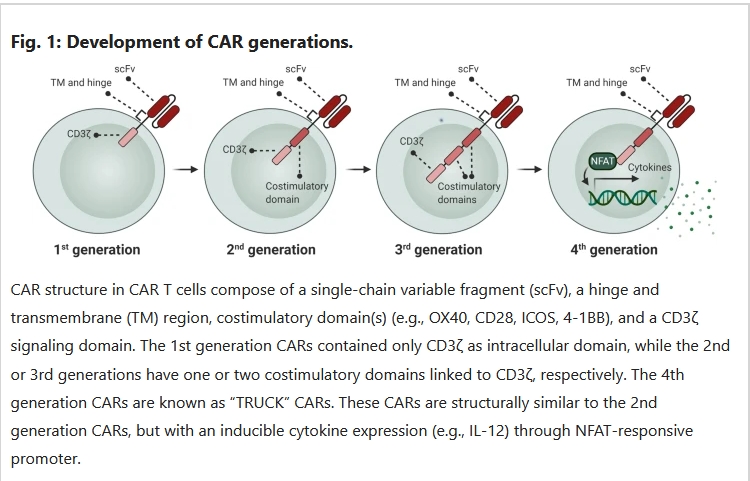Blog Post
Understanding CAR-T Cells in Cancer Therapy
CAR-T cell therapy, an innovative frontier in cancer treatment, has garnered significant attention in recent years. In this blog, we’ll delve into the basics of CAR-T cells, their potential in cancer therapy, and the advantages they bring to the table.
What are CAR-T Cells?
Chimeric antigen receptor T-cells, commonly referred to as CAR-T cells, are a type of immune cell. Scientists modify these cells to specifically target and kill cancer cells. Let’s break down how they work:
- Collection: Doctors collect T-cells, a type of white blood cell, from the patient.
- Modification: These T-cells are then genetically modified in a lab to produce special structures called chimeric antigen receptors (CARs) on their surface.
- Infusion: After multiplication, these modified CAR-T cells are infused back into the patient.
- Targeting: Once inside the patient’s body, these CAR-T cells can now identify and eliminate cancer cells.

Benefits of Using CAR-T Cells in Cancer Therapy
- Precision: CAR-T cells are designed to attack specific cancer cells, leaving healthy cells unharmed.
- Strength: These cells can persist in the body, continuing to combat cancer cells for months or even years.
- Personalization: As the T-cells come from the patient, there’s a reduced risk of certain side effects compared to traditional treatments.

Poorebrahim, M., Melief, J., Pico de Coaña, Y. et al. Counteracting CAR T cell dysfunction. Oncogene 40, 421–435 (2021). https://doi.org/10.1038/s41388-020-01501-x
Considerations and Future Directions
While CAR-T cell therapy is promising, it’s not without challenges. Side effects can be severe, and not every patient responds to the treatment. However, ongoing research aims to refine the approach, expand its applicability, and improve patient outcomes.
In conclusion, CAR-T cell therapy represents a cutting-edge approach in the fight against cancer. As research progresses, we remain hopeful about the potential of these powerful cells to transform cancer treatment. Remember, early detection and innovative therapies like CAR-T cells are essential tools in the battle against this disease.

